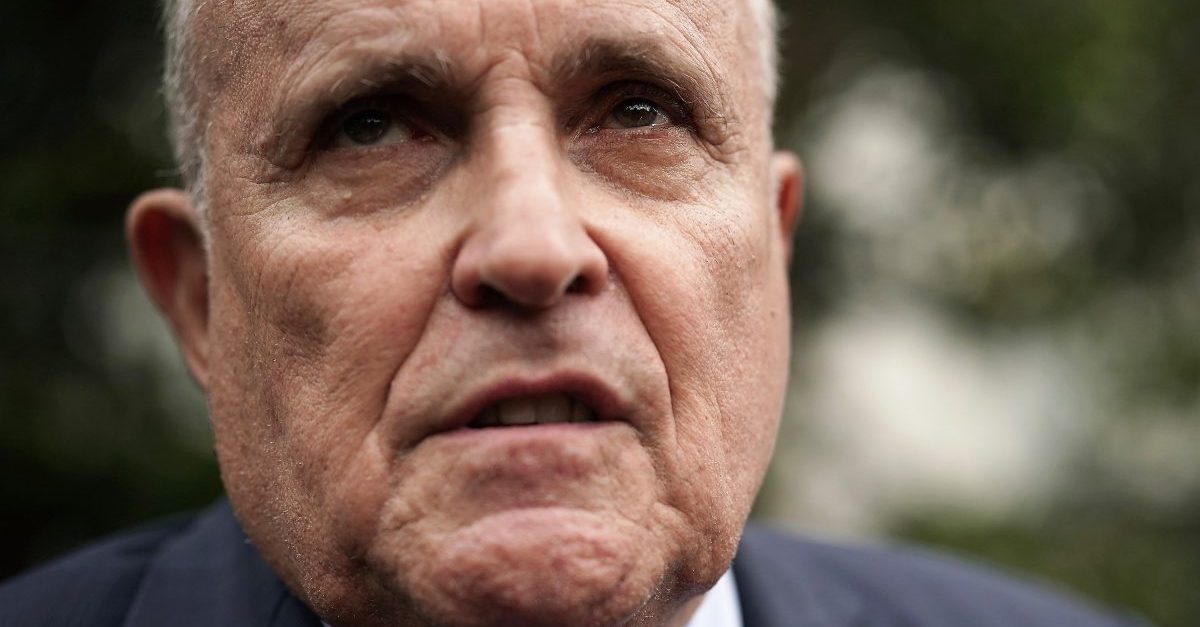
The Trump campaign cannot block certification of Pennsylvania’s election results, which made Joe Biden President-elect of the United States, based on nothing more than “strained legal arguments without merit and speculative accusation,” a federal judge ruled in a blistering opinion on Saturday night.
“In other words, Plaintiffs ask this Court to disenfranchise almost seven million voters,” U.S. District Judge Matthew Brann wrote in a 37-page opinion. “This Court has been unable to find any case in which a plaintiff has sought such a drastic remedy in the contest of an election, in terms of the sheer volume of votes asked to be invalidated. One might expect that when seeking such a startling outcome, a plaintiff would come formidably armed with compelling legal arguments and factual proof of rampant corruption, such that this Court would have no option but to regrettably grant the proposed injunctive relief despite the impact it would have on such a large group of citizens.”
“That has not happened,” Brann emphasized. “Instead, this Court has been presented with strained legal arguments without merit and speculative accusations, unpled in the operative complaint and unsupported by evidence. In the United States of America, this cannot justify the disenfranchisement of a single voter, let alone all the voters of its sixth most populated state. Our people, laws, and institutions demand more.”
The Pennsylvania lawsuit was the first federal case in which Rudy Giuliani last registered an appearance since 1992, and most legal observers felt that it would have been a parade of bloopers if it did not have the serious goal of overturning the results of a lawful election. Giuliani flubbed basic concepts of law, fact and the English language.
After abandoning broad and airy voter fraud claims, Giuliani claimed that the fact that certain Pennsylvania counties gave mail-in voters the chance to cure defective ballots violated the equal protection clause of the Constitution because others did not extend the same courtesy to expand ballot access.
Judge Brann found that argument reminiscent of Mary Shelley‘s most famous Gothic novel.
“This claim, like Frankenstein’s Monster, has been haphazardly stitched together from two distinct theories in an attempt to avoid controlling precedent,” Brann wrote.
Joining the Trump campaign in the lawsuit were two voters: Lawrence Roberts and David John Henry, residents of bright-red Pennsylvania counties that did not give voters an opportunity to cure defective ballots. But Roberts and Henry did not ask for the right to make their votes count. Instead, they asked for the court to invalidate millions of other ballots—but only for the presidential election, not the other races on the same ballots.
“Rather than requesting that their votes be counted, they seek to discredit scores of other votes, but only for one race,” Brann observed. “This is simply not how the Constitution works.”
In a footnote, Brann called out the illogical—others have said cynical—request to leave the downballot races intact.
“They suggest that their requested relief would thus not interfere with other election results in the state,” the ruling states. “But even if it were logically possible to hold Pennsylvania’s electoral system both constitutional and unconstitutional at the same time, the Court would not do so.”
The Trump campaign’s theories of the case kept changing. The initial lawsuit used variations of the phrase “voter fraud” some 33 times until the law firm that filed that one, Porter Wright, backed out, and the new lawyers deleted every reference to those allegations in a second complaint.
“This is not a fraud case,” Giuliani later admitted to the judge, in a backflip of the rhetoric he regularly uses in front of the cameras.
Mark Aronchick, an attorney for the Pennsylvania counties sued, called Giulaini’s smears of election workers “disgraceful.”
Before today’s ruling, the Trump campaign wanted a third bite of the apple to amend their complaint yet again, but Judge Brann found another re-do unjustified.
“Among the grounds that could justify a denial of leave to amend are undue delay, bad faith, dilatory motive, prejudice, and futility,” he wrote.
Giuliani and his press representative did not immediately respond to a text message or email requesting comment. Neither did the White House.
The Keystone State’s Attorney General Josh Shapiro celebrated the ruling even as he denounced the flood of litigation that precipitated it.
“These claims were meritless from the start and for an audience of one,” Shapiro wrote. “The will of the people will prevail. These baseless lawsuits need to end.”
Appointed by former president Barack Obama, Judge Brann boasts bipartisan bona fides with a resume listing positions in multiple Pennsylvania GOP entities, including an 18-year stint in the Branson County Republican Committee.
Senator Pat Toomey, a Republican from Pennsylvania who reportedly helped propel Brann’s career, declared Biden the winner shortly after the ruling.
Praising Brann’s fairness and impartiality, Toomey wrote: “President Trump has exhausted all plausible legal options to challenge the result of the presidential race in Pennsylvania.”
“Unsurprisingly, I have significant policy disagreements with the President-elect,” Toomey added. “However, as I have done throughout my career, I will seek to work across the aisle with him and his administration, especially on those areas where we may agree, such as continuing our efforts to combat COVID-19, breaking down barriers to expanding trade, supporting the men and women of our armed forces, and keeping guns out of the hands of violent criminals and the dangerously mentally ill.”
Pennsylvania counties will vote to certify the election results on Monday.
Read the 37-page ruling below:
[image via Alex Wong/Getty Images]